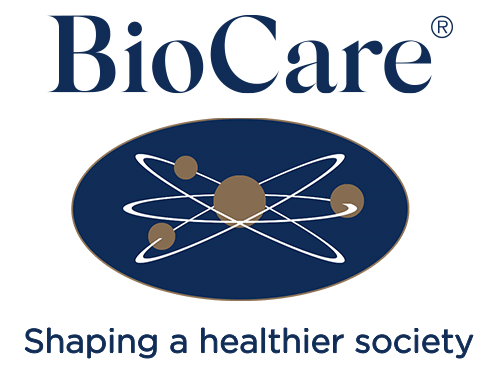
The impact of having a healthy microbiota during pregnancy
Share
There are many reasons why your microbiota may not be the best when it comes to getting pregnant, including: bad lifestyle habits, stress, environmental pollution, the use of antibiotics, the consumption of tap water, a diet poor in fruits and vegetables, among others. In the process of pregnancy and breastfeeding, your baby will gradually generate its own microbiota in an intestine that is very sterile, so it is essential to worry about who will colonize that small intestine.
Why is it so important to have a healthy microbiota from pregnancy? Not only will the bacteria in our intestines be in charge of digesting food, but also, before birth, they are in charge of modulating the immune system and our metabolism. In addition, they protect us against major viral infections, and prevent the appearance of allergies and food intolerances. The first approach to obtaining this strong and resistant microbiota will be through our mother, who will transfer small organisms to the baby through her own intestine during pregnancy, childbirth and then through breast milk.
On the other hand, given the prevalence of constipation during pregnancy, maintaining a healthy microbiota can be a very good ally to help regularize intestinal transit. You can find natural sources in kefir, bird yogurt, sauerkraut, among others. Remember that always maintaining a healthy diet is key to having a healthy intestine. Do not abuse processed foods and choose natural foods; vegetables and fruits, legumes and easily digestible proteins, always accompanied with fats such as avocado, olives, olive oil and nuts.
Another aspect of probiotics is that they have a positive influence on blood sugar levels. Thus reducing the possibility of developing gestational diabetes and also reducing the risk of preeclampsia, as well as low birth weight and baby eczema.
Furthermore, contrary to what was believed a few years ago - that breast milk was sterile - breastfeeding is an important source of probiotics and prebiotics , since it contains numerous species of commensal bacteria (staphylococcus epidermidis, streptococcus salivarius, enterococcus, lactobacilli ) with immunomodulatory, anti-inflammatory and growth-inhibiting properties of pathogenic bacteria such as Staphylococcus aureus , as well as non-digestible oligosaccharides that promote the growth of these commensal bacteria in the baby's intestine.
For all these reasons, breastfeeding plays a fundamental role in the colonization of the newborn's intestine . During the first years of life, the intestinal flora of infants is different depending on whether or not they have been breastfed, also causing differences in the immune system and when facing common diseases in children, such as colds, influenza, seasonal allergies, asthma, among others. .
Our Bioflora has a consortium of strains called LAB4B, designed especially for use during pregnancy (especially in the third trimester), this combination is specialized for women to use during pregnancy and has been widely tested. It provides 10 billion power and helps us with immune and microbial support before childbirth. It has been especially helpful for women with allergies or a family history of allergies to prevent food allergies in babies.
The LAB4B mixture of Lactobacillus salivarius, Lactobacillus paracasei, Bifidobacterium bifidum and Bifidobacterium lactis was used in the “Swansea Baby Study” in a group of pregnant women and their newborns at a total daily dose of 10 billion. In this study, it was found that the consumption of these strains reduced the risk of atopic allergies in newborns, in addition to other immunological benefits. On the other hand, it has been seen that strains of Lactobacillus and Bifidobacterium can reduce the risk of upper respiratory tract infections.
Do not hesitate to write to us on our social networks or email to obtain more information and to advise you on your case.
References:
Milani C, Duranti S, Bottacini F, Casey E, Turroni F, Mahony J, Belzer C, Delgado Palacio S, Arboleya Montes S, Mancabelli L, Lugli GA, Rodriguez JM, Bode L, de Vos W, Gueimonde M, Margolles A , van Sinderen D, Ventura M. The First Microbial Colonizers of the Human Gut: Composition, Activities, and Health Implications of the Infant Gut Microbiota. Microbiol Mol Biol Rev. 2017 Nov 8;81(4):e00036-17. doi: 10.1128/MMBR.00036-17. PMID: 29118049; PMCID: PMC5706746.
Lyons KE, Ryan CA, Dempsey EM, Ross RP, Stanton C. Breast Milk, a Source of Beneficial Microbes and Associated Benefits for Infant Health. Nutrients. 2020 Apr 9;12(4):1039. doi:10.3390/nu12041039. PMID: 32283875; PMCID: PMC7231147.
Heine RG. Food Allergy Prevention and Treatment by Targeted Nutrition. Ann Nutr Metab. 2018;72 Suppl 3:33-45. doi: 10.1159/000487380. Epub 2018 Apr 9. PMID: 29631274.
